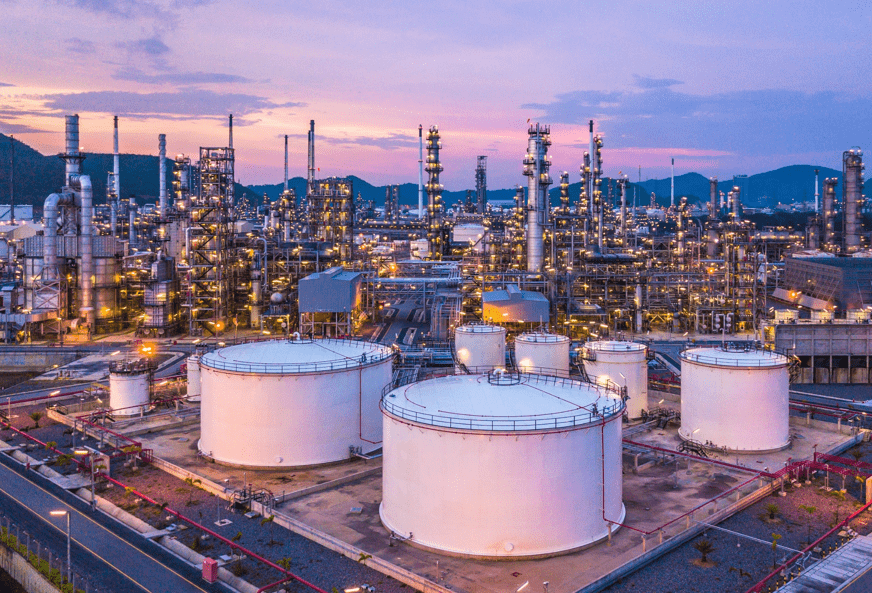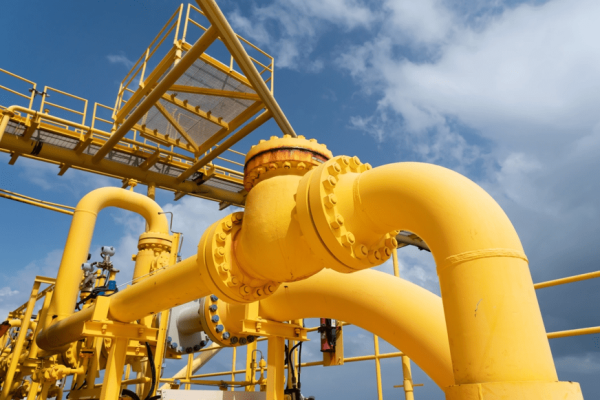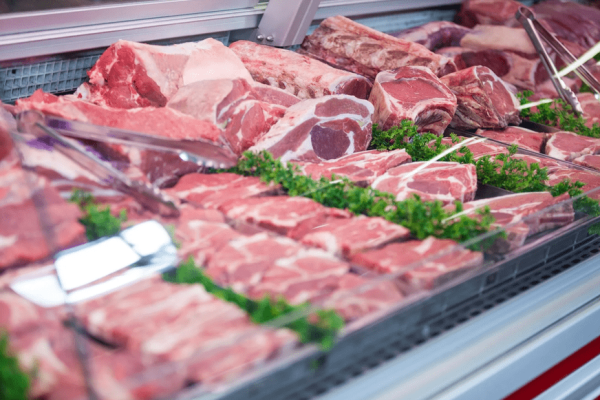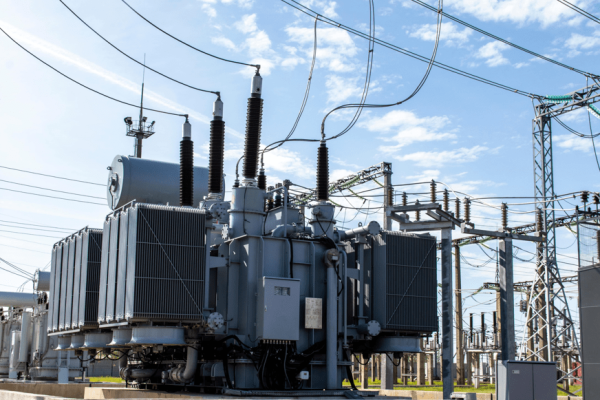Kazakh oil refineries supplied 73.3% of motor fuel consumed and 97.4% of diesel fuel consumed in the country. Petrol output increased by 10.6% and production of gasoils by 3.6%
15 September 2016
2002

The price of the most popular octane-93 petrol increased by 16.4% year on year to KZT125 per litre in July. The price of summer diesel increased by 3.3% year on year to KZT99 per litre.
In the first half of 2016 Kazakh producers* met 73.3% of demand for petrol (including jet fuel), 97.4% of demand for gasoils and 97.6% of demand for heating oil.
For comparison, local output accounted for 67.1% of petrol consumed, 96.5% of diesel fuel and 87.5% of heating oil consumed in the country in 2015. These figures stood at 61.3%, 64.2% and 76.6% respectively in 2014.
Events: The Pavlodar refinery is increasing the share of Kazakh content in purchases of materials, equipment and services, thus fulfilling a state programme in 2015-2019. Thus, in 2015 the share of local content reached 44.19% in 2015 and 50% in 2016. The refinery pays particular attention to increasing the share of local content in the fulfilment of its modernisation programme.
In order to install piles for the basement of column equipment (three columns) it hired the KGS-Astana company and another Astana-based company KazGerStroy LLP prepared sites for temporary premises and facilities. Local company Pavlodarenergostroy was tasked to develop a pit for an isomerisation facility and naphtha splitter and basement for technological equipment. Another Pavlodar-based company Stroymekhservis was attracted to develop a basement for metal frames for an isomerisation facility and naphtha splitter and building an alkali supply and removal facility. The local company ViK Ltd built a cable flyover at these facilities, developed basements, made and installed metal frames and cable lots. Another seven firms – three Pavlodar-based (RITAM, SEM ZMK and Stalmontazh LLPs), one Karaganda and Taraz-based PMZ-Imstalcon and three Temirtau-based IssEngineering, TimerMash and TKMM2 LLPs built metal frames for facilities of the first launch facility and an isomerisation facility and naphtha splitter, as well as reservoirs for isomerisate and a station for mixing petrols) and facilities of general use.
Brickwork and finishing work at facilities of the early phase were conducted by Astana-based Qazaq Construction company. Pavlodar-based Damak built an underground fire water pipeline. Insulation of technological equipment and pipelines was done by Ekibastuz-based Promenergoizolyatsiya, while local Story Energy painted columns equipment and pipelines. Access Solutions from Almaty made the fireproof coverings of metal frames.
*The share of Kazakh content for fuel use is shown for 2015 based on preliminary data and for 2016 based on preliminary data in the first half and for 2010-2014 based on final data (with account of reserves at the beginning of the year).

Output of motor fuel reached 1.8m tonnes – up by 10.6% year on year. The Pavlodar refinery is leading in terms of petrol production – almost 45% of Kazakh output or 811,700 tonnes (up by 0.5% year on year). The highest growth was recorded at the Shymkent oil refinery – 35.5% year on year to 646,300 tonnes. The Atyrau refinery produced 341,700 tonnes of motor fuel in the first seven months of 2016.
The Pavlodar refinery is also leading in terms of diesel fuel output – 33.5% of Kazakh production, 932,500 tonnes – down by 10% year on year. However, the refinery’s share fell significantly. The Shymkent refinery increased output by 26.8% year on year to 743,500 tonnes (27.7% of Kazakhstan’s total output, almost the same as the Atyrau refinery’s share). Kazakhstan’s output of gasoils reached 2.8m tonnes.
Output of heating oil reached 1.7m tonnes, down by 14.7% year on year, in the first seven months of 2016. The Atyrau refinery was the leader (687,200 tonnes, down by 21.4%). Only the Shymkent refinery posted growth – by 33.4% to 576,500 tonnes. Its share increased from 21.7% to 34% of Kazakhstan’s total output in the past year.
Events: Journal of modernisation. Digest of news for 22-26 August 2016
Atyrau refinery
The Atyrau refinery’s deep oil processing facility used 78,100 cubic metres of concrete (77.5%) for building basements and other works at its construction sites. It installed 20,800 piles (99.5%) and 32,000 tonnes of metal frames (90.5%), laid 53,600 tonnes of underground pipelines (84.5%) and 2,000 reinforced concrete columns (97.7%) at its construction sites. Work is underway to install technological pipelines.
Construction and installation works involve 1,312 people.
Pavlodar refinery
The Pavlodar refinery used 7,700 cubic metres of concrete (81%) for basements and other works at sites designated for an isomerisation facility and naphtha splitter.
A total of 91 units of equipment (67%) was installed and 3,700 tonnes of metal frames were used (98%). A reservoir for isomerisate is being installed, works on the first reservoir was completed for 99.5% and on the second for 99.8%. Work to build technological pipelines is underway.
Construction and installation works involve 939 people.
A total of 8,000 tonnes of concrete (70%) was used for building a facility to produce sulphur; 240 units of equipment was supplied (95.6%), 120 units of equipment (48%) was installed. A total of 2,300 tonnes of metal frames (89%) were installed.
Works involve 529 people.
Shymkent refinery
As part of the modernisation of the Shymkent refinery PetroKazakhstan Oil products company used 6,700 tonnes of concrete for building an isomerisation facility (67%).
A total of 115 units of equipment (77.1%) was installed at the facility and 3,500 tonnes of metal frames (98.6%) were installed. Pipe joints and pipelines are being built.
Construction and installation works involved 1,481 people.
The digest uses material published on www.kmgrm.kz.

Production of both motor and diesel fuel and heating fuel decreased in 2015. Earlier, in 2014, petrol output grew significantly (10.1% year on year), heating oil production also grew (3.8% year on year), while diesel fuel fell by 2% on 2013).
This year, judging by performance in the first seven months, may set a steady positive trend for production of motor fuel, including jet fuel, and diesel fuel.

In July the price of octane-80 petrol increased by 2.2% year on year to KZT89 per litre, octane-92 petrol by 16.4% to KZT125 per litre, octane-95/96 petrol by 7.8% to KZT139 per litre and octane-98 petrol by 3.6% to KZT156 per litre.
The price of summer diesel fuel increased by 3.3% year on year to KZT99 per litre.

Popular articles
Watch allWhich Social Networks and Messengers Do Kazakhstan’s Young People Prefer?
According to the analytical report “Youth of Kazakhstan” for 2024, one of the most common ways young people spend their Читать далее...
9 October 2025
4552
Gas Production Declined, While Prices Jumped 28% Year-on-Year
In January–July of this year, natural gas production in Kazakhstan amounted to 14.8 billion cubic meters, down 10.3% compared with Читать далее...
17 September 2025
4547
Who and why does Kazakhstan’s saiga antelope give trouble?
Experts question the department’s statistics, as well as decisions made at state level regarding saigas In early summer, there Читать далее...
28 June 2022
3663
Kazakhstan’s Citizens Are Meat Lovers: Meat and Meat Product Consumption Up by 2%
In January–September of the current year, Kazakhstan produced 57.3 thousand tonnes of fresh or chilled meat from cattle, pigs, sheep, Читать далее...
29 October 2025
3573
Electric Vehicles Accounted for Less Than 1% of All Registered Cars in Kazakhstan
From January to July of this year, 925.8 thousand passenger cars were registered in Kazakhstan, 0.3% more than in the Читать далее...
28 August 2025
3027
“Pirating” in Kazakhstan: 59% of Young People Use Free Platforms to Watch Films and Series
According to the analytical report Youth of Kazakhstan for 2024, one of the most common leisure activities among young people Читать далее...
26 September 2025
2802
Power generation reaches 53.7bn kWh in January-July, up by 1.7% year on year. Gas turbine power plants with a capacity of 100,000 kW worth KZT18.6bn were commissioned in the first half of the year
Electricity tariffs went up by 5.8% year on year in August
16 September 2016
2206
Kazakh oil refineries supplied 73.3% of motor fuel consumed and 97.4% of diesel fuel consumed in the country. Petrol output increased by 10.6% and production of gasoils by 3.6%
The price of the most popular octane-93 petrol increased by 16.4% year on year to KZT125 per litre in July. The price of summer diesel increased by 3.3% year on year to KZT99 per litre
15 September 2016
2002
Safeguarding the nature: investment into environmental protection increased by 34% over the year
The number of fixed point sources of pollution in 10 years has increased by 58% Environmental issues are extremely Читать далее...
5 November 2021
1470
Industrial enterprises navigate to sustainable development
Major industrial companies’ investments into social and infrastructure projects in 2019 exceeded 140 billion Tenge Kazakhstan has been holding Читать далее...
5 November 2021
1443
How Much Do People in Kazakhstan Spend on Medicines?
In the second quarter of this year, household healthcare spending in Kazakhstan averaged 28.8 thousand tenge per household, 6.6% less Читать далее...
25 September 2025
1432
Focus on ESG: the world is confidently switching to green rails and sustainable development principles
In Kazakhstan, only some of the major backbone companies, major market players, and national development institutions are ready to implement Читать далее...
5 November 2021
1350
Global Peace Index: The Number of Conflicts Is Rising, and the World Is Becoming More Dangerous
According to the annual Global Peace Index (GPI) published by the Institute for Economics & Peace, Iceland has remained the Читать далее...
12 January 2026
1295
Output of unrefined and semi-refined gold increased by 21.5% year on year, that of refined gold by 16.5%
Jewellery prices jump by 20.1% year on year on average in Kazakhstan, by 50% in Astana
6 September 2016
1243
Renewable energy generation capacities goes up by 40% year-on-year in Kazakhstan in 1Q2016
Clean energy generation jumps by 130% year-on-year in this period
22 June 2016
1146














